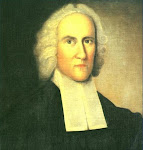Someone on Sunday asked that I post the outline I have developed through many years on the biblical teaching about the sanctity of human life from conception to natural death. I am happy to do so, and I do so with thanks to God for his clear words on this subject in Holy Scripture.
“What The Bible Says About Abortion and
the Sanctity of Human Life”
Sanctity of Human Life Sunday 2012
Prepared by Stephen E. Farish, Pastor
I. principles from the Bible touching on the question of abortion
a. God asserts that he alone has the sovereign right to decide matters of life and death (Deuteronomy 32:39).
b. We are not autonomous in the use of our bodies; that is, we cannot do with our bodies whatever we choose to do. The Bible does not affirm a “right to choose” an abortion (Acts 17:28; 1 Corinthians 6:18-20).
c. God is the Author of all human life (Genesis 2:4-7; Psalm 139:13-16; Acts 17:28; etc.).
d. God places a very high value on human life because he has stamped us with his image (Genesis 1:26-27; 9:4-6; James 3:9).
i. Genesis 1:26-27 and the creation of human beings in God’s image is the principle that spurred the Civil Rights movement of the 1950’s-1970’s, especially in the mind of Martin Luther King, Jr.
e. God condemns the taking of innocent human life (Genesis 9:4-6; Exodus 20:13, the Sixth Commandment).
f. Jesus commands that we work to save and improve the lives of others (Matthew 5:21-22).
g. The Bible views life as being on a continuum that begins at conception and ends at death (Psalms 51:5; 139:13-16).
i. Other passages that indicate God deals actively with babies in the womb, which indicates they are human beings and not “blobs of protoplasm” or “the product of conception” (Psalm 51:5, David a moral being at conception; Isaiah 49:1-2, 5; Jeremiah 1:4-5; Luke 1:41-44; Judges 13:5-6).
h. God affirms the sanctity of prenatal life in that he himself became a baby in the womb in the Incarnation of Jesus Christ (John 1:1, 14; Luke 1:35).
i. The Old Testament Law of God treated a baby in the womb as a human being and prescribed the same penalties for hurting a person inside the womb as a person outside the womb (Exodus 21:22-25).
j. The Bible calls babies in the womb “children” in Exodus 21:22 and Luke 1:41, 44, using the Hebrew word yeled and Greek word brephos.
k. God loves all human beings (John 3:16), including unborn human beings, and he wants us to be like him, by his grace, in this love (Ephesians 5:1).
II. The testimony of the science of genetics confirms that the biblical view of when life begins is neither irrational nor unsicientific.
a. “Since species-specific DNA strands, identifying the fertilized egg as human, are present at conception, a human person with rights is present at conception.”[1]
b. “When the sperm and egg unite, a genetically unique human being comes into being. While the developing child is dependent on the mother’s body for nourishment and oxygen, physiologically the unborn child is not simply a part or extension of the mother’s body. The unborn child is an individual in his or her own right, with a separate and distinct life trajectory.”[2]
III. So what should a follower of Jesus do, with and by God’s grace, to help promote the sanctity of human life?
a. cultivate respect for all other human beings, regardless of age, race, nationality or abilities
b. warn our society about God’s attitude toward the our sin (Ezekiel 3:16-19)
c. seek to change our laws so that all people, born and unborn, receive justice (Jeremiah 21:12; Luke 11:42; Amos 5:21-24; etc.)
d. help provide legitimate alternatives for women seeking abortions, by support of ministries like local crisis pregnancy centers or Teen Mother Choices (through prayer, volunteering, and financial support)
e. point women who have undergone abortions (and the men who encouraged them) to the forgivness and healing power found only in God’s grace in Jesus Christ
f. support and practice adoption, as the Lord leads
g. work for the respect of human life at the end of life too
h. pray (and perhaps fast), asking God to end abortion in this land
i. pray that the Lord would raise up judges of righteousness who would overturn Roe v. Wade and who would protect preborn life
j. proclaim the gospel faithfully in a dark world (Romans 1:16)—we can change minds ultimately, by God’s grace, through the gospel alone
IV. For more information, see the following web sites:
a. www.nrlc.org (web site for National Right to Life Committee)
b. www.cbhd.org (web site for the Center for Bioethics and Human Dignity at Trinity International University)
c. www.family.org (web site for Focus on the Family)
V. Two statements from The Baptist Faith & Message (2000), the official statement of faith of Crossroads Church and of the Southern Baptist Convention:
a. “Children, from the moment of conception, are a blessing and heritage from the Lord” (paragraph XVIII).
b. “We [Christians] should speak on behalf of the unborn and contend for the sanctity of human life from conception to natural death” (paragraph XV).
